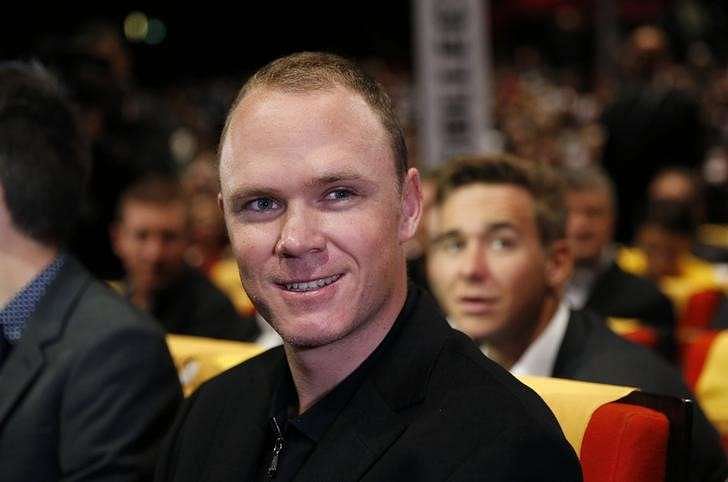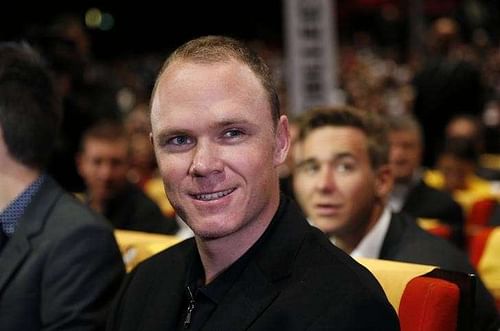
Cycling: Froome declares support for Sky boss Brailsford

LONDON (Reuters) - Three times Tour de France winner Chris Froome spoke out in support of his embattled Team Sky boss Dave Brailsford on Monday while apologising to fans who felt let down by mistakes over anti-doping and testing practices.
Froome added in a statement that the team "need to do better" in future.
"It disappoints me hugely to see the way in which Team Sky has been portrayed by the media recently. It does not reflect the support crew and the riders that I see around me," said the rider.
"At the same time, I completely understand why people feel let down by the way in which the situation has been handled, and going forward we need to do better.
"I would like to apologise for this on behalf of myself and the other riders of Team Sky who feel passionately about our sport and winning clean. I believe in the people around me, and what we are doing," added Froome.
Former British Cycling performance director Brailsford has come under fire for failing to prove what was in a medical package ordered by a team doctor and delivered to Bradley Wiggins at the 2011 Criterium du Dauphine race.
Brailsford told lawmakers that the package contained the legal decongestant Fluimucil - although the lack of a paper trail has called into question Sky's medical record-keeping.
Team Sky and British Cycling have both been subject to an investigation by UK Anti-Doping (UKAD) into allegations of wrongdoing in the sport. Both have denied any doping violations.
Several Team Sky riders have expressed support for Brailsford, who launched the team in 2010 and has led it to four Tour triumphs, although Froome had kept his silence on the matter until Monday.
"With respect to Dave Brailsford, he has created one of the best sports teams in the world. Without Dave B, there is no Team Sky," he said.
"He has supported me throughout the last seven years of my career and I couldn't be more grateful for the opportunities and the experiences I've had.
"By his own admission, mistakes have been made, but protocols have been put in place to ensure that those same mistakes will not be made again."
(Reporting by Alan Baldwin, editing by Mark Trevelyan)